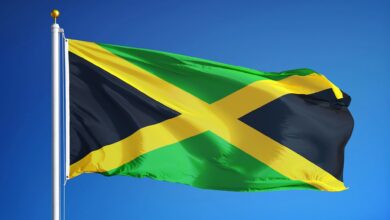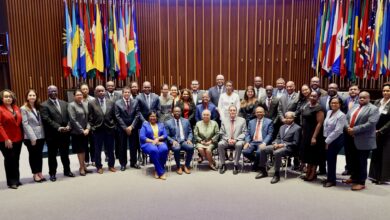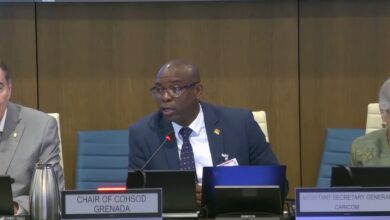(CARICOM Secretariat, Turkeyen, Greater Georgetown, Guyana) The Caribbean Community is intensifying efforts to contain the spread of the H1N1 Virus popularly known as Swine Flu within the Caribbean, with the most recent initiative being the strengthening of national laboratories with PCR equipment and relevant training of lab staff to enhance testing capabilities in identifying the HINI virus.
At the 18th Meeting of the Council for Human and Social Development (COHSOD) held in Jamaica recently, the Caribbean Epidemiology Centre (CAREC) presented a report that revealed the severity of the H1N1 Virus, which is now classified by the World Health Organisation (WHO) at Phase 6, the highest level.
The report also indicated that of the 362 cases tested to date, 32 were diagnosed as positive in The Bahamas, Bermuda, Cuba, The Dominican Republic and Jamaica, with one death recorded in the Dominican Republic.
The Report also recorded some of the initial challenges confronting the regional health sector in fighting this virus. Those included limited human resource capacity, procurement of supplies, lack of reserves, specimen transfer and specimen contamination, however adequate supplies including treatment were now available, the report indicated.
Against this background, the COHSOD agreed that more vigorous efforts should be made to update existing national plans to a state of ‘readiness’ to strengthen surveillance, and under the guidance of the Caucus of Ministers of Health and in consultation with the Pan American Health Organization (PAHO) to establish and sustain a more effective and efficient Caribbean Laboratory Network.
To this end therefore, CAREC and the collaborating centre at the University of the West Indies, Mona were designated as two reference laboratory facilities fully equipped to do the testing required for identifying the type of influenza virus. Further regional collaboration would be done with the Institut Pasteur, the world-famous French research organization which focuses on the prevention and treatment of disease worldwide.
The COHSOD also agreed to support the framework for defining the sub-regional co-operation strategy of the Pan American Health Organisation (PAHO), and to provide the necessary feedback for its completion at the Caucus of Medical Officers of Health which would allow for further consultations with other relevant stakeholders, such as the CARPHA Steering Committee and the Regional Co-ordinating Mechanism for PANCAP. Although the H1N1 virus has now spread to 69 countries, the majority of the cases reported so far have been mild, though 126 people have died as a result of the virus.





